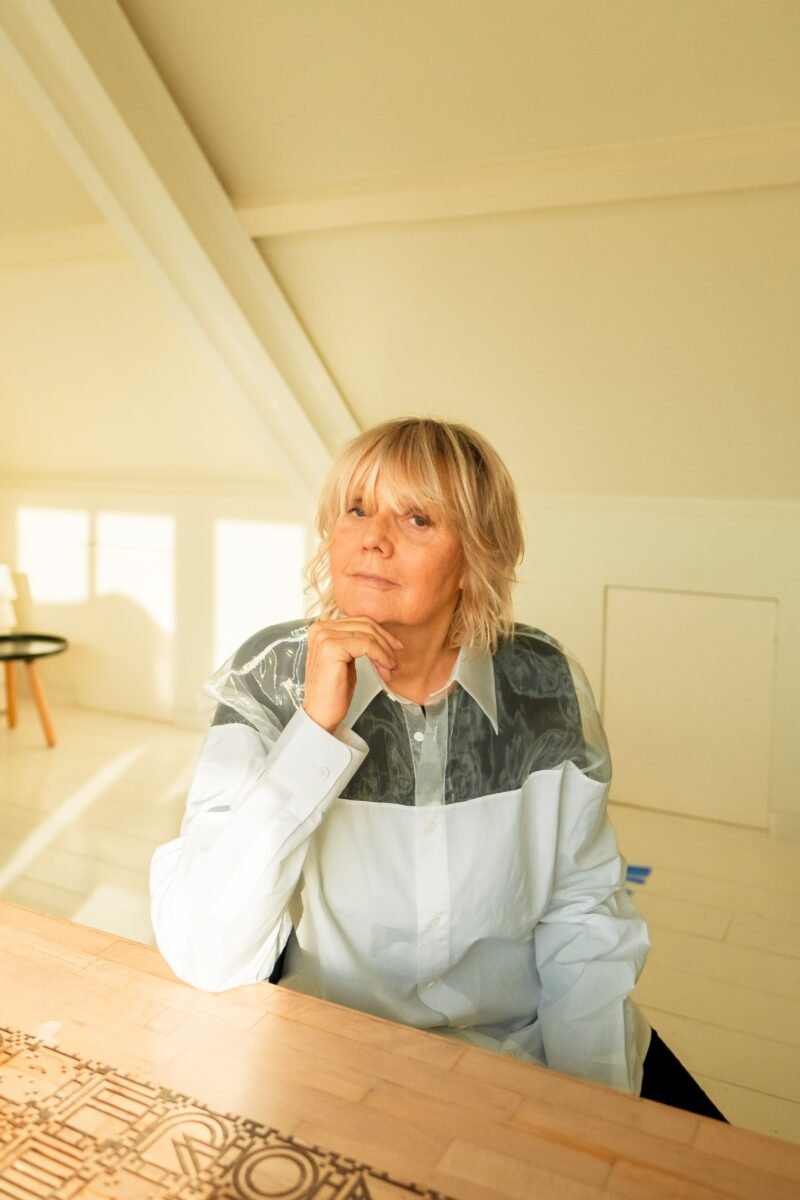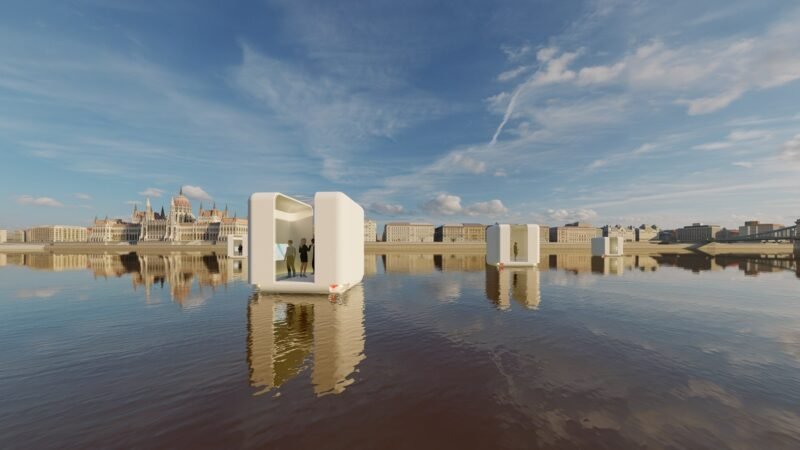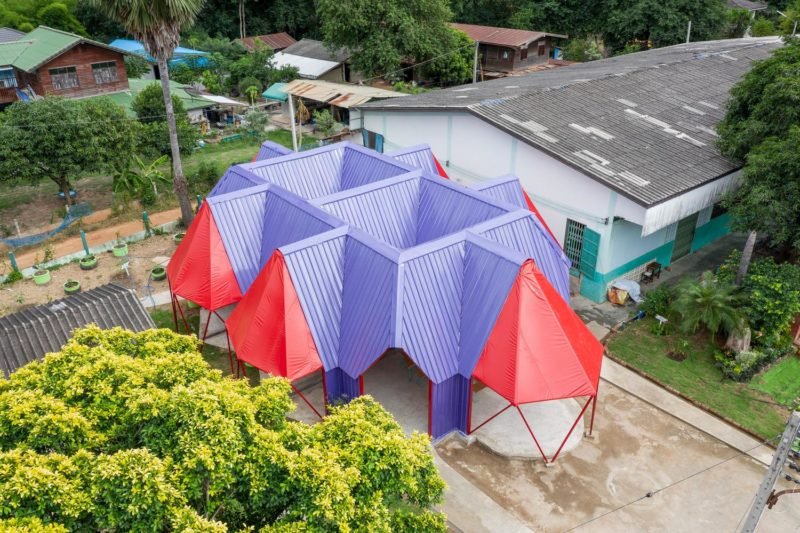Meet Europe’s Most Sustainable Floating Neighborhood
Schoonschip is a neighborhood which is now emerging in the North of Amsterdam. Literally translated to 'clean ship' it will be a clean, sustainable neighborhood made out 30 floating plots of homes and a community center.
The Schoonschip initiative group, with the help of numerous partners, consultants, sponsors and the Space & Matter architecture agency designed, is now in the process of building a new neighborhood in the North of Amsterdam. This neighborhood will not be your regular collection of houses: it will float on the Johan van Hasseltkanaal, a side canal of the IJ river.
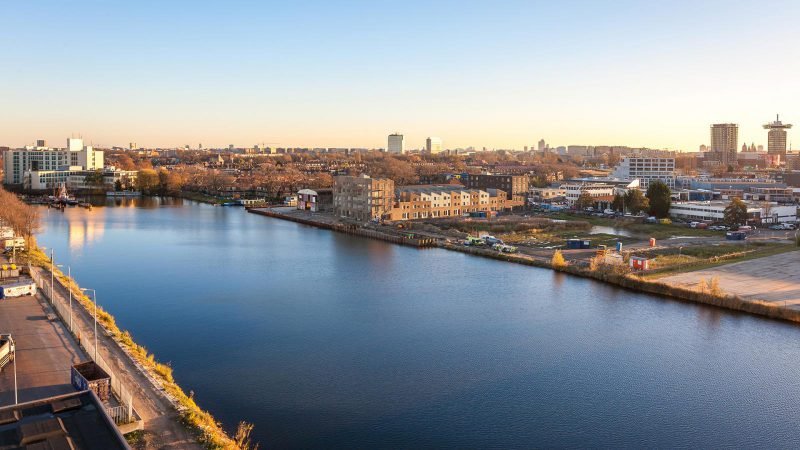
The neighborhood will consist of homes for 46 households (around 100 residents) and a community center built on 30 floating plots. The first homes have already been constructed in 2018, and by 2020 Schoonschip should become reality as the most sustainable neighborhood in Europe.
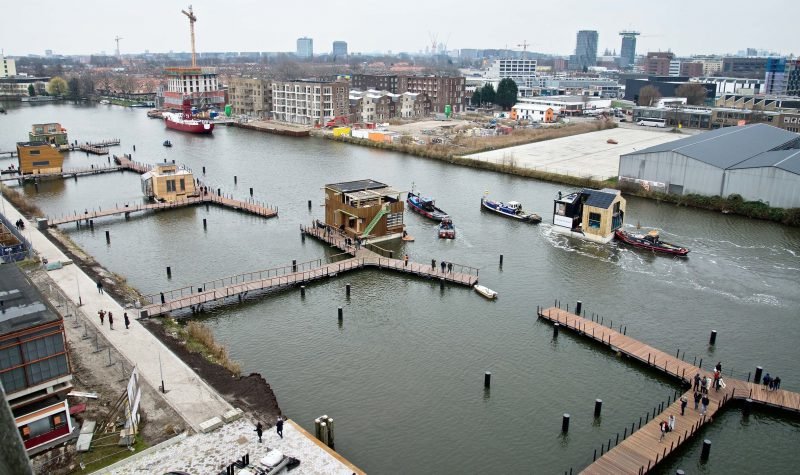
Each house in the floating community will be sustainable and almost self-sufficient. Insulated and equipped with solar panels and water pumps extracting water from the canal to heat the interior, the homes will use the surroundings for energy and warmth. Waste water will be converted back into energy and many of the houses will also have a green roof where residents can grow their own plants and even food.
The social and communal aspect of Schoonschip is also set up to be sustainable. The residents work together to realize the plans for the area. They also agreed to share electric cars between each other. The community feeling is enhanced by a ‘smart jetty’ that serves as a pavement and meeting space. Building and living on water offers a resilient housing solution for places with a high chance of being affected by climate change caused rising water levels and other natural hazards. It allows people to live within and in harmony with their surrounding, while at the same time protecting the natural environment.
The trend of ‘floating’ initiatives has been emerging in different cities for example Berlin, where a floating university was designed or Copenhagen where small floating public spaces have been introduced.
